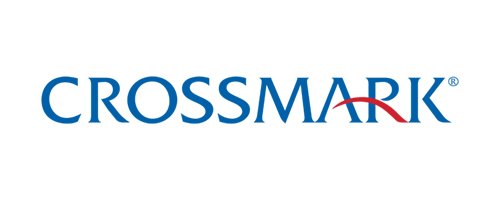
November 2022 – From cereal and ice cream to chips and chocolate, the way foods with high fat, sugar, and salt (HFSS) are promoted in store is changing. In the UK, the government is shaking up the food and beverage industry by introducing new legislation in October 2022 that places promotional restrictions on HFSS foods.
The purpose behind the decision is to reduce obesity levels across the UK with the long-term goal of shaping children’s food preferences. This new legislation will have major ramifications for retailers and food manufacturers who produce and sell these products, as they are now banned from certain placement in stores, including the end of the aisle, located outside of the usual shelf area and the checkout. From 2023, they also won’t be able to conduct in-store volume sales promotions, a delayed restriction due to the current rise in the cost of living.
While this radical move by the UK government hasn’t come to Australian shores, our country does have a serious obesity problem. About 14 million Australians are living with obesity, which is two in every three adults, and one in four children. However, the government is taking steps to reduce obesity in Australia with its National Obesity Strategy, an ambitious 10-year framework designed to create systemic change.
To achieve its goal, the report proposes several measures, including stricter rules regarding HFSS advertising on television, sports and major sporting events, and in supermarkets. If the recommendations are implemented, this would mean reduced exposure to unhealthy food and drink marketing, promotion, and sponsorship for children. In the future, fast food collectable promotions may also be scrapped or heavily restricted.
The report also discusses the importance of working with supermarket chains to prevent the targeting of advertising and promotion of HFSS foods to more at-risk people, particularly those in low socioeconomic areas. Supermarkets have a real opportunity to do more to support this strategy to help Australians choose better foods and make small changes to their diets. However, there is still much room for improvement.
In 2020, Deakin University released a report on major Australian supermarkets and their levels of healthiness. It revealed that unhealthy food was present at 90 per cent of all staff-assisted checkout, 80 per cent of all end-of-aisles displayed at least one unhealthy item, and the proportion of shelf space allocated to unhealthy food and drinks was nearly 10 per cent higher in the most disadvantaged communities in Australia.
Polly Yule, managing director, CROSSMARK, said, “Traditionally, supermarkets have been promoters of HFSS food and beverages in-store. As the UK introduces new legislation, Australian supermarkets are also taking steps to lower in-store exposure to unhealthy foods by promoting more ‘better for you’ options at checkouts. Taking a more self-regulated approach to helping consumers make healthy choices may help Australia avoid the type of HFSS legislation that has been introduced in the UK.”
It’s great news that supermarkets are starting to take small proactive steps to drive healthier options for consumers. Supermarket giant Coles recently announced a major change to its health aisle by adopting a ‘health in every aisle’ strategy so consumers can find healthier options more easily. The first transformation will appear in the cereal aisle, where healthier alternatives will sit beside traditional cereal brands. This will also make healthier products easier to find for consumers who are gluten intolerant or have other special dietary requirements.
Recently, Woolworths announced its 2022 Sustainability Report that includes several ambitious health commitments to support its goals of increasing healthier choices in consumer baskets. According to the report Foodswitch: State of the Food Supply, Woolworths won the title of healthiest supermarket in Australia, with its own brands scoring an average health star rating of 3.2 compared to its competitors. To ‘make healthier easier,’ Woolworths’ online website highlights healthier products and offers useful tips, recipes, and inspiration for a healthier lifestyle.
This trend towards healthier eating has led to significant growth in demand for healthy and sustainable products, with the health food market forecast to reach $25 billion by 2030. Changing supermarket marketing practices has given rise to a swathe of new health food-driven companies, with new products entering the market. Many of these are marketed to improve gut health, increase fibre and protein intake, and lower sugar intake.
Creating a healthier Australia isn’t just about integrating healthy foods into regular aisles. Supermarkets must also offer greater access to foods that promote healthy eating and educating its consumers on the nutritional value of its products.
Back in the UK, supermarket chain Tesco recently announced it would provide brands full access to planogram data through Tesco Planogram Publisher, a new software tool that gives brands greater visibility into how their product is displayed in store across all formats and locations. It will also help brands navigate changes to store layout ahead of the October 2022 HFSS regulations.
In Australia, planograms are accessible for brands through the Woolworths compass app and Coles has a similar exclusive store app available to selected preferred suppliers including CROSSMARK. Making more data readily available for Australian brands will help them better understand what is happening across the entire store footprint to enable more informed decisions.
Becky Schrederis, business manager, CROSSMARK, said, “The in-store changes underway in Australian supermarkets have resulted in many companies turning to field sales and marketing to maximise merchandising and execution. Field teams can represent a company’s products on the shelf and design data-driven plans that are cost-effective, targeted, and support in-store marketing initiatives.”
In the race to satisfy consumer health needs, Australian brands must be smart in how they launch new products and influence shopper behaviour. By leveraging a field team, brands can make a significant impact in-store, deliver a better return on investment, and contribute to a healthier future for Australian shoppers.
Click here to learn more about CROSSMARK or call (02) 9439 1233.
Ends
Media enquiries:
Kim Viney, Write Away Communication
Tel: 0412 868 472, Email: kim_viney@therecognitiongroup.com.au
About CROSSMARK
CROSSMARK is Australasia’s largest retail marketing services company, with multi-channel expertise across supermarket, mass, convenience, pharmacy, and specialty retail, and serving more than 200 manufacturers and brands. CROSSMARK works with retailers and manufacturers to market products and brands to consumers in the last six feet of a sale. This includes merchandising and point of sale, product sales training, consumer and staff incentive programs and product sales.




